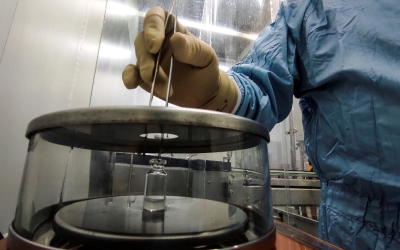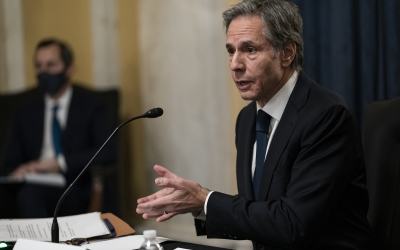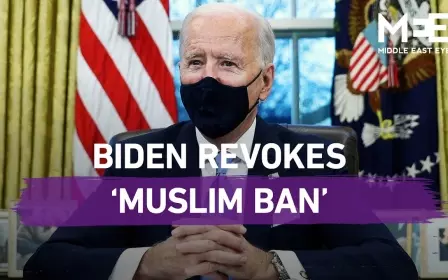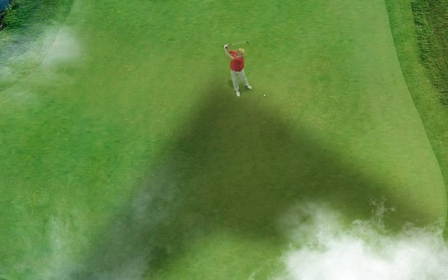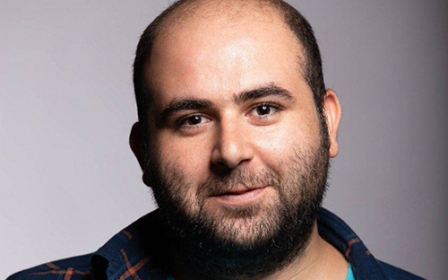Iran's Zarif calls on Biden to 'unconditionally' lift sanctions
Iran's foreign minister called on the new US administration to "unconditionally" lift sanctions against the Islamic Republic, warning that any attempt to extract "concessions" from Tehran before returning to the nuclear deal would jeopardise the opportunity to revive the pact.
Top Iranian diplomat Mohammad Javad Zarif wrote in a column published in Foreign Affairs magazine on Friday that Tehran would return to full compliance with the nuclear agreement once sanctions were lifted, but stressed that Iran's regional policies are "not up for discussion" with Washington.
"US President Joe Biden can choose a better path by ending Trump's failed policy of 'maximum pressure' and returning to the deal his predecessor abandoned," Zarif said.
"If he does, Iran will likewise return to full implementation of our commitments under the nuclear deal. But if Washington instead insists on extracting concessions, then this opportunity will be lost."
Biden, who was sworn in on Wednesday, has vowed to return to the agreement if Tehran upholds the restrictions on its nuclear programme.
But many critics, including hawkish members of Biden's own Democratic Party, have been calling for a new deal that would address Iran's ballistic missile programme and support for regional proxies.
Incoming US Secretary of State Tony Blinken told lawmakers earlier this week that Biden would revive the deal and use it as a "platform - with our allies and partners, who would once again be on the same side with us - to seek a longer and stronger agreement".
The multilateral accord, known as the Joint Comprehensive Plan of Action (JCPOA), saw Iran scale back its nuclear programme in exchange for lifting sanctions against its economy.
Former US President Donald Trump nixed the deal and embarked on a "maximum pressure" campaign of sanctions against Tehran.
On Friday, Zarif cautioned Biden to undo Trump's mistakes, "rather than attempt to exploit" them. He said efforts to pressure Iran failed to force Tehran to surrender or change its "strategic calculus". Instead, the Islamic Republic increased its uranium enrichment under Trump's sanctions.
Militarisation of Middle East
The Iranian diplomat also urged the new US president to quickly push to salvage the deal, noting that the Iranian parliament passed a law to bolster uranium enrichment and limit UN inspections of Iran's nuclear facilities if sanctions are not lifted by February.
"The administration should begin by unconditionally removing, with full effect, all sanctions imposed, reimposed, or relabeled since Trump took office," Zarif wrote.
"In turn, Iran would reverse all the remedial measures it has taken in the wake of Trump's withdrawal from the nuclear deal."
The foreign minister did not mention Iran's ballistic missile programme, but he ruled out negotiating over the country's defence strategy.
He blamed the US and the West for turning the Middle East into the "most militarized region in the world", highlighting that Saudi Arabia, a country of 27 million citizens, is the top weapons importer in the world, and the bulk of those arms comes from America, France and the UK.
"The United Arab Emirates, another leading purchaser of US weapons, has no more than 1.5 million citizens but is the eighth-largest arms buyer on the planet," Zarif said.
"These countries have used the weapons they have bought to rain death and destruction on civilians in Yemen, and the White House gave them first a green light under President Barack Obama, and then carte blanche, under Trump, to do so."
Still, he said Iran would seek dialogue among the states in the region to resolve issues and address their common challenges without Western interference.
Earlier this week, Zarif welcomed his Qatari counterpart's call for talks between Arab Gulf states and Iran.
"As we have consistently emphasized, the solution to our challenges lies in collaboration to jointly form a 'strong region': peaceful, stable, prosperous & free from global or regional hegemony," Zarif wrote on Twitter.
Middle East Eye delivers independent and unrivalled coverage and analysis of the Middle East, North Africa and beyond. To learn more about republishing this content and the associated fees, please fill out this form. More about MEE can be found here.


